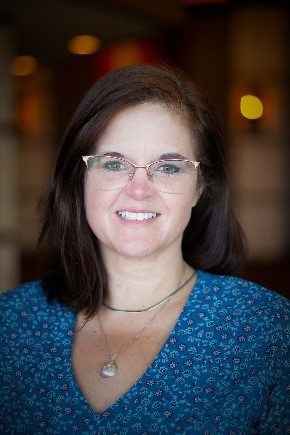In December 2023, the U.S. Department of Health and Human Services released its annual update on the National Plan to Address Alzheimer's Disease; outlining efforts by HHS, the Indian Health Service, and partners in expanding support to individuals with Alzheimer's disease and related dementias. The 2023 update reports on plans and progress realized in three of the four main IHS priority areas identified through a tribal consultation and urban confer.
More than six million Americans have Alzheimer's disease or a related type of dementia. That number is expected to more than double by 2060 due to the aging population. As many as one in three American Indian and Alaska Native people ages 65 and older are at risk of developing dementia, and one of every six ages 45 and older report experiencing symptoms of cognitive decline that impact their day to day life. This makes dementia a major public health issue, as well as a challenge for Indian health care systems.
Funding
In 2022, the IHS established the Alzheimer's Grant Program, newly funded in the FY 2021 budget. IHS announced eight new tribal and urban Indian health clinics and systems awards in September 2023, bringing the total number of Alzheimer's cooperative agreement awards to 12. These recipients are developing models incorporating comprehensive approaches to care and service for people living with dementia and their caregivers.
Total funding for the two-year grants is estimated at over $4.3 million. It represents a steadfast commitment to support locally developed, innovative models that prioritize culturally competent screening, diagnosis, and management of dementia in tribal communities. An additional round of FY 2024 funding will be announced later this year.
The following is a summary of IHS highlighted efforts from the report, designed to meet the federal priority of preventing and treating Alzheimer's disease and related dementias by 2025.
Goal: Enhance care quality and efficiency
IHS Alzheimer's program workforce development activities offer a significant investment in healthcare staff training and education. This leverages efforts made by our federal partners at the Health Resources & Services Administration, the Department of Veterans Affairs, and the Centers for Disease Control and Prevention.
The IHS Indian Health GeriScholars Pilot, launched in 2022, is modeled after the highly successful VA Geriatric Scholars Program designed to build geriatric expertise into the primary care workforce. In the first year of the pilot, demand exceeded expectations. By June 2023, 15 Indian Health GeriScholars at 10 sites had attended training and completed projects focusing on detection and diagnosis of dementia, medication safety, and fall prevention. The 2023 cohort of Indian Health GeriScholars will include physicians, nurse practitioners, physician assistants, and pharmacists from 14 sites, including seven IHS clinics and hospitals, six tribal health programs, and one UIO health program representing seven IHS Areas.
A 2023 Geriatric Nurse Fellowship pilot was developed that is patterned after the GeriScholars program. This offers nursing professionals in a variety of roles in I/T/U programs protected time and opportunity to acquire additional skills and training and applied learning in their clinical setting. Nineteen nurses applied for the first cohort.
In 2023, the IHS developed additional partnerships and collaborations to provide dementia training, resources, and assistance. Selected partnership highlights include:
- IHS Community Health Representative (CHR) collaboration on planning for a multi-site pilot to test the use of the Mini-Cog dementia screening tool in community settings,
- IHS Division of Nursing collaboration with the American College of Emergency Physicians to support and expand efforts by IHS and tribal emergency departments to achieve Geriatric Emergency Department Accreditation (GEDA),
- IHS Division of Oral Health clinical support for a pilot project at five sites aimed at increasing recognition of cognitive impairment in dental settings, and
- Northwest Portland Area Indian Health Board's Indian Country ECHO Program effort to develop two monthly ECHO series specific for Indian Country.
Goal: Enhance public awareness and engagement
In support of NAPA Goals 2 and 4, the IHS initiated a small, targeted awareness-building campaign in 2023. New activities include the use of social media, recurring stories in the internal IHS Week in Review and publicly distributed IHS Updates for Tribes and Tribal and Urban Indian Organizations, an IHS blog post, IHS area office newsletter stories, and an update to the IHS Alzheimer's and Dementia website.
Measuring the campaign's impact is ongoing, but initial engagement metrics are promising. Twenty-two social media posts targeting the nearly 75,000 followers through the IHS Facebook page, LinkedIn and Twitter accounts reached more than 167,000 people.
Subscription to the IHS Elder Care Listserv also serves as a vehicle for communication with stakeholders in aging services across Indian Country. It has increased by 140 percent since September 2022.
Goal: Improve data to track progress
IHS continues to work with federal partners and researchers to identify data and infrastructure needed to track the progress and effectiveness of dementia strategies. Currently ongoing, this body of work may include new or improved measures, new data collection efforts, or links between existing datasets.
These highlights from the annual NAPA Plan Update, written in mid-2023, reflect only a few of the ongoing and planned activities and initiatives being undertaken by the IHS program team. Click to read the full report or contact our team to learn more about how you can get involved.
While there is no cure, the IHS Alzheimer's and Dementia Program is working to help reduce risk factors for dementia and improve the lives of those living with the condition, their families, and caregivers.
Visit Alzheimers.gov for information about ongoing research and the many federal resources available to educate and support people whose lives are touched by these devastating diseases.



